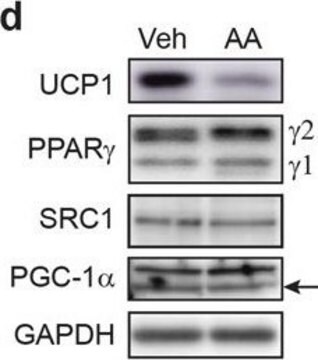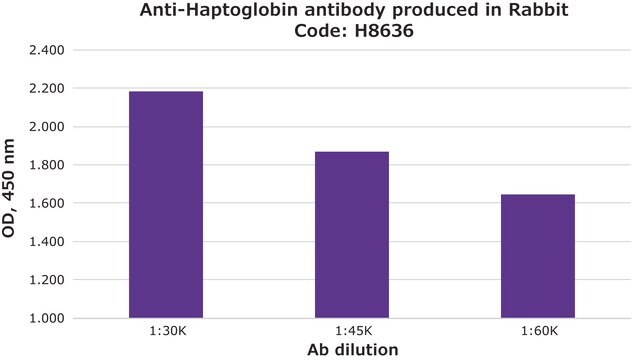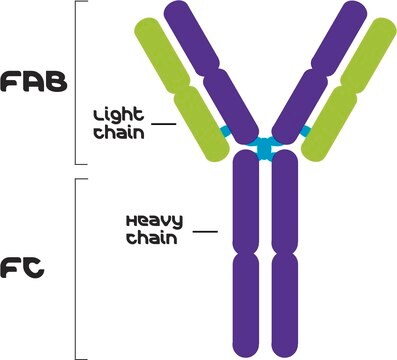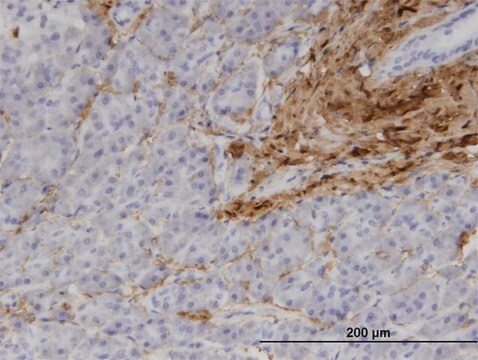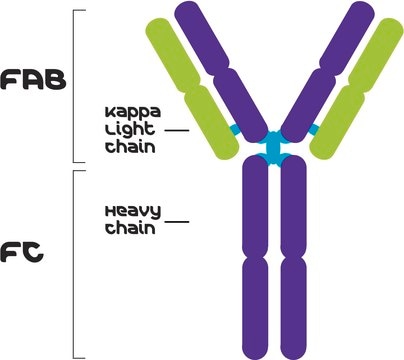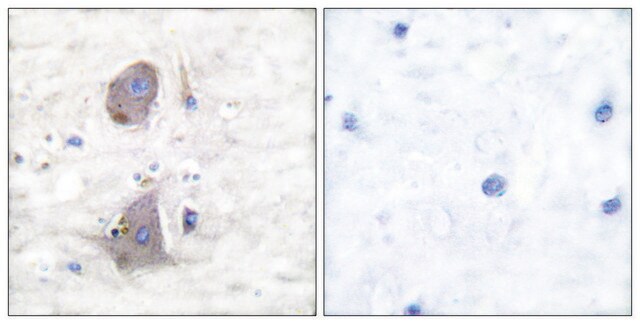O7635
Anti-Osteopontin antibody produced in goat
affinity isolated antibody, lyophilized powder
Sinonimo/i:
Anti-OPN
About This Item
Prodotti consigliati
Origine biologica
goat
Livello qualitativo
Coniugato
unconjugated
Forma dell’anticorpo
affinity isolated antibody
Tipo di anticorpo
primary antibodies
Clone
polyclonal
Stato
lyophilized powder
Reattività contro le specie
mouse
tecniche
capture ELISA: 0.2-0.8 μg/mL
immunohistochemistry: 5-15 μg/mL using mouse thymus tissue sections
neutralization: 1-3 μg/mL
western blot: 0.1-0.2 μg/mL
N° accesso UniProt
Temperatura di conservazione
−20°C
modifica post-traduzionali bersaglio
unmodified
Informazioni sul gene
mouse ... Spp1(20750)
Descrizione generale
Immunogeno
Azioni biochim/fisiol
Stato fisico
Risultati analitici
Esclusione di responsabilità
Non trovi il prodotto giusto?
Prova il nostro Motore di ricerca dei prodotti.
Codice della classe di stoccaggio
11 - Combustible Solids
Classe di pericolosità dell'acqua (WGK)
WGK 3
Punto d’infiammabilità (°F)
Not applicable
Punto d’infiammabilità (°C)
Not applicable
Scegli una delle versioni più recenti:
Possiedi già questo prodotto?
I documenti relativi ai prodotti acquistati recentemente sono disponibili nell’Archivio dei documenti.
Il team dei nostri ricercatori vanta grande esperienza in tutte le aree della ricerca quali Life Science, scienza dei materiali, sintesi chimica, cromatografia, discipline analitiche, ecc..
Contatta l'Assistenza Tecnica.
